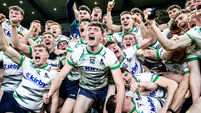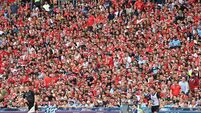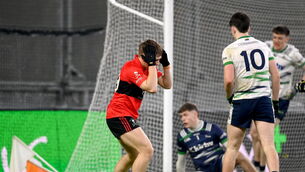Sean Cavanagh’s call ‘anything but brave, it was a wrong decision’

Ireland’s leading brain injury specialists have expressed serious concern at reports Sean Cavanagh played for Tyrone while concussed last weekend.
Manager Mickey Harte stated after his side’s Allianz league defeat to Monaghan talisman Cavanagh suffered ‘a slight, mild concussion’ early in the game but played on.













